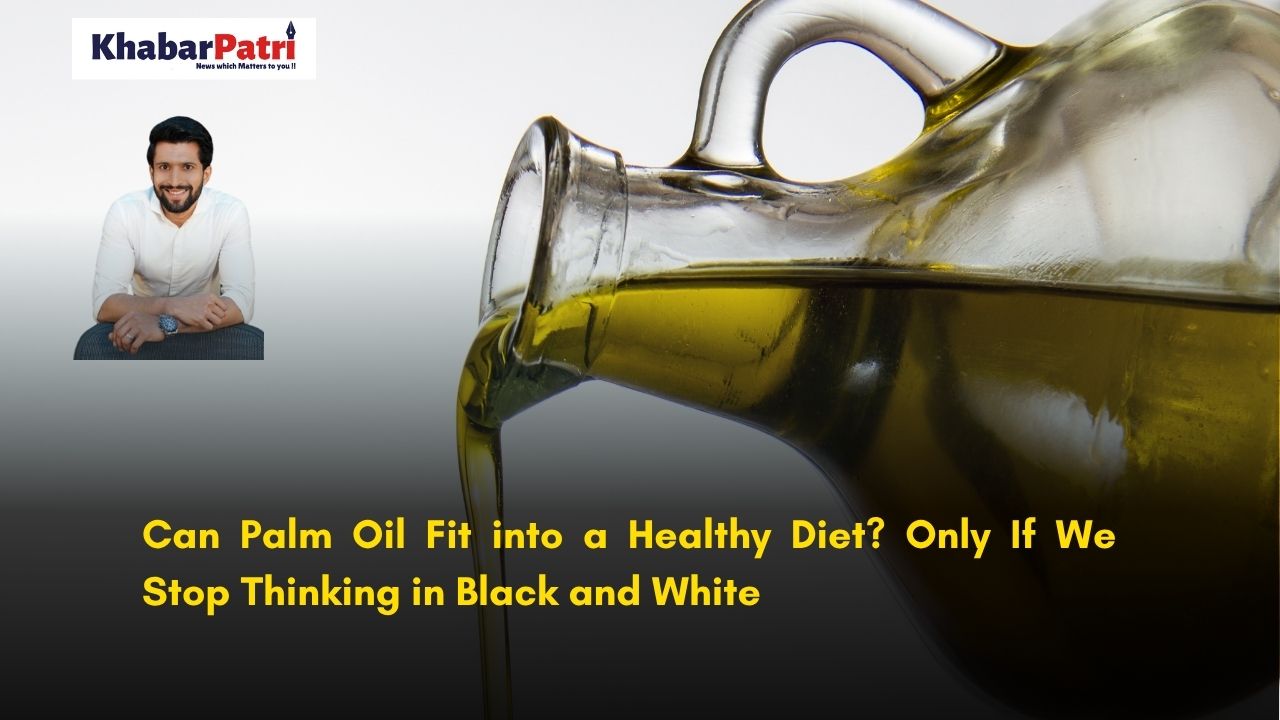-By Vijay Thakkar, Author of Eating Less is Making You Fat
Health:We inhabit a world where food transcends mere sustenance. It embodies morality, identity, trends, and frequently, trauma. At some point, eating shifted from being about nourishment to being governed by a set of rules. One week, carbohydrates are labeled as the enemy; the next, it’s fats. Moreover, oils such as palm oil aren’t just disapproved of; they are portrayed as villains.
Let’s pause for a moment : What we’ve learned from real-world psychology and years of nutrition research is this: strict dietary control is ineffective. In truth, the more restrictions we impose on our eating habits, the more prone we become to breaking them. When we do slip up, it often isn’t with ease; we tend to tumble off the wagon rather dramatically. This can lead to feelings of guilt, binge eating, self-criticism, and, ultimately… surrendering to the cycle.
It’s a cycle I’ve observed far too often. Individuals switch from keto to vegan, paleo to low-fat, and high-carb Pritikin-style diets as if they were merely changing clothes, all in pursuit of the ideal solution. Yet, the weight consistently comes back, fatigue persists, and the complicated relationship with food intensifies. If this resonates with you, know that you are not alone; many others are facing similar challenges. However, there is a path forward—a way to escape this repetitive cycle and regain your sense of freedom.
So, let’s take a moment to reflect: what if the issue lies not with the food, but with our mindset? In nutritional psychology, we call it dichotomous or binary thinking; it’s developing an all-or-nothing mindset that says food is either “clean” or “junk,” and you’re either “on” or “off” the diet. This mindset is rooted in perfectionism and fear and is a major predictor of binge eating, diet burnout, and weight regain. It can lead to unhealthy relationships with food, feelings of guilt and failure, and ultimately, can sabotage your efforts to maintain a healthy diet.
Which brings us back to palm oil. : No, palm oil isn’t a miracle food, but it isn’t poison either. It’s just fat, a cooking medium used for generations, especially in African, Indian, and Southeast Asian kitchens. The problem isn’t the oil. The problem is how we think about it.
When we categorise palm oil as “bad,” we trigger the same food guilt spiral that derails diets in the first place. We avoid it obsessively, then feel like failures when we “slip.” But what if I told you that we can stop fearing foods and begin to fit them into our diets mindfully while staying healthy and losing weight?
Embracing Flexible Dietary Restraint : This is where flexible dietary restraint comes into play. Unlike strict diets, this approach promotes awareness rather than avoidance. You ensure that you meet your protein requirements (at least 1.2g/kg of body weight) and daily fiber intake (~15g per 1000 kcal), while also allowing yourself the freedom to alternate between carbohydrates and fats for energy. Additionally, you can create a modest daily calorie deficit of 100-200 kcal. Within this framework, there’s room for your favorite foods—even those labeled as “bad.” It’s about taking charge of your diet instead of letting it dictate your choices, empowering you in your food decisions.
This could mean adding a spoonful of palm oil to your homemade curry, tossing a banana into your smoothie, or enjoying dessert with friends. For example, you can use palm oil to sauté vegetables or as a base for a homemade salad dressing. These are just a few mindful and healthy ways to include palm oil in your diet.
By adopting this way of eating, we not only nourish our bodies but also mend our relationship with food. We break free from cycles of guilt and shame, fostering consistency that leads to genuine, lasting health. The reality is, nutrition isn’t a moral code. There isn’t a single solution for clean eating. All foods—even sugar, fat, and palm oil—can fit into a healthy diet when consumed in moderation and context.
We don’t need more food rules; we need more food wisdom. It’s time to transition from “Should I eat this?” to “How can I include this mindfully?” This shift not only benefits your waistline but also nurtures your mind.
So yes, palm oil can be part of a healthy diet—not because it’s extraordinary, but because you are now equipped to practice moderation. And that awareness, more than any trendy diet or list of superfoods, fuels true transformation.
Because the most effective diets? They thrive on flexibility, not fear.

